With very little fanfare, Shimano quietly unveiled its new Deore M6000 groupset last year. We got our test groupset in before Xmas, and put it in the hands of a mile-munching Huw Oliver to put the new drivetrain and brakeset through its paces. Over to Huw!
Poor old Deore. Sitting at the bottom of Shimano’s mountain bike groupset pile. It’s usually last to receive shiny new upgrades, and never one to make a fuss of itself. Given the direction that drivetrains have been going of late, with MORE sprockets, MORE teeth and MORE electronics, you could be forgiven for giving the Deore M6000 groupset no more than a passing glance. That would be a mistake however, because despite the lack of attention-grabbing headlines, this is the groupset you never knew you needed.
I’ve been testing the 2x version of the drivetrain, with a ‘sweet spot’ 36/26t chainring combination, although a 3x (non Boost compatible) version is also available. No, Shimano doesn’t have a dedicated 1x version of Deore. Yet. The updates extend right across the range of M6000 components, but let’s start in the middle with that chainset…
Shimano Deore M6000 Chainset – £99.99
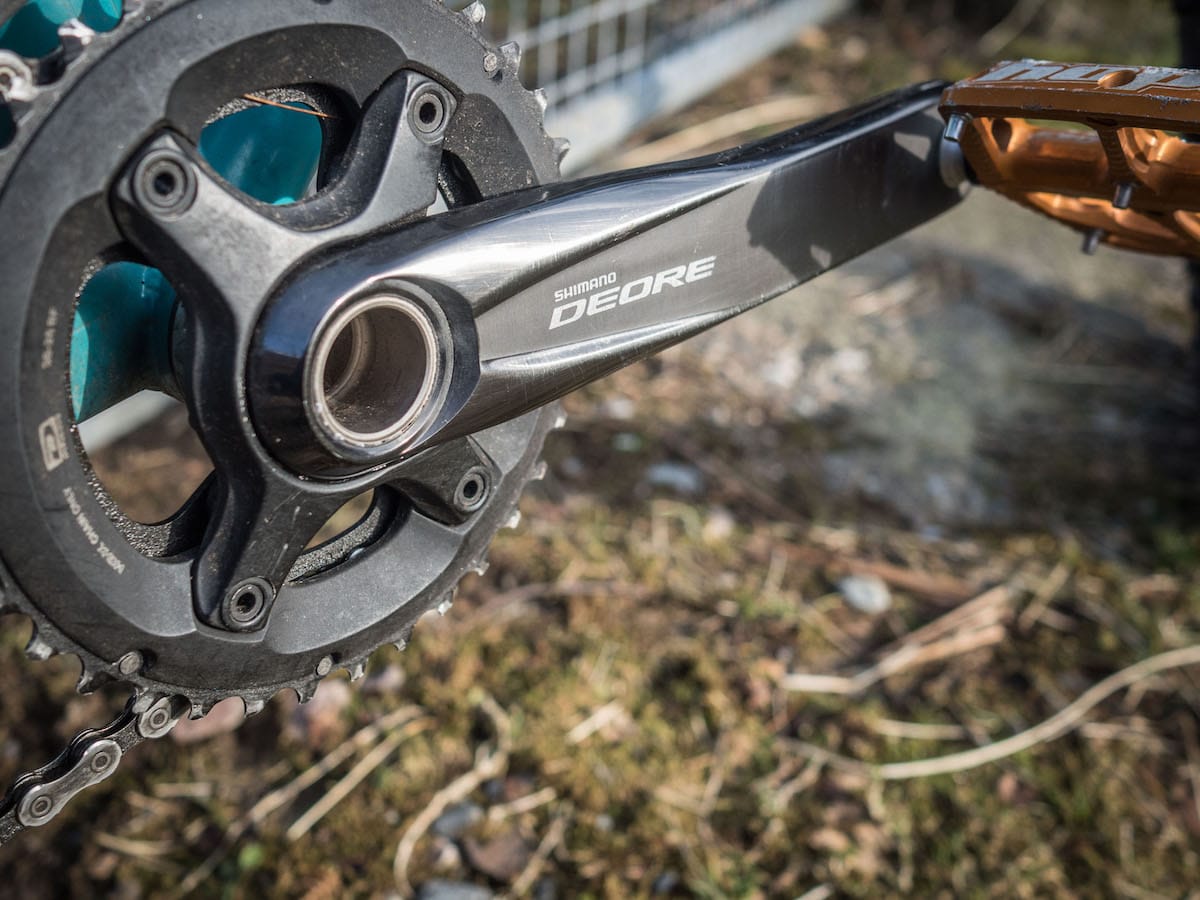
The heart of the drivetrain is a clear example of trickle-down technology at its best: finally, Deore level crank arms receive Hollowtech technology (the old arms were solid-forged alloy), and that means weight is now a respectable 820g including the threaded bottom bracket. They really look the part, too and if it weren’t for the logo I wouldn’t have guessed that this is an entry-level crank. Shimano’s pinch bolt fixing system and 24mm steel spindle is tried, tested and needs no introduction, like much of the technology found here. During testing the crank arms have received the usual inevitable scuffing, but they wear it well.
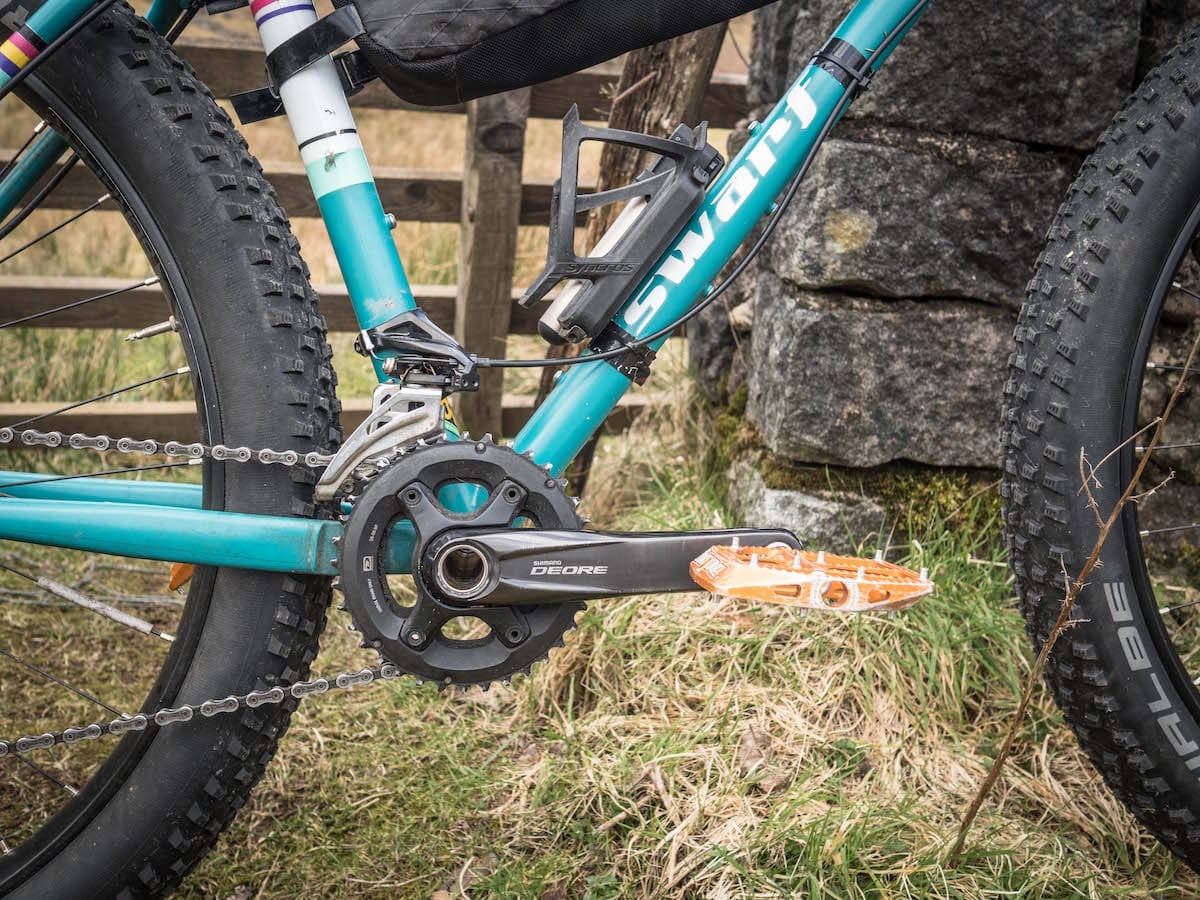
Only the 2x chainset with 36/26t chainrings is available to fit Boost frames, which is lucky because in my opinion it’s the best combination for a mountain double. A 3x version and other (non-boost) 2x options are available. The 96mm BCD ‘X-wing’ design (originally from XTR) has found its way into this groupset as well, bringing it into line with SLX, Deore XT and XTR. I’m still not sure that I see the point, but given that there isn’t a dedicated 1x crank it doesn’t create any compatibility issues with aftermarket chainrings. Even the chainrings themselves get an upgrade, with the outer sharing the composite/steel construction of its more expensive cousins.
As with every other Shimano chainset I’ve used, there was nothing to report during use. It goes round. It shifts well, and at £99.99, I reckon this chainset is a bargain.
Shimano Deore M6000 Front Mech – £27.99
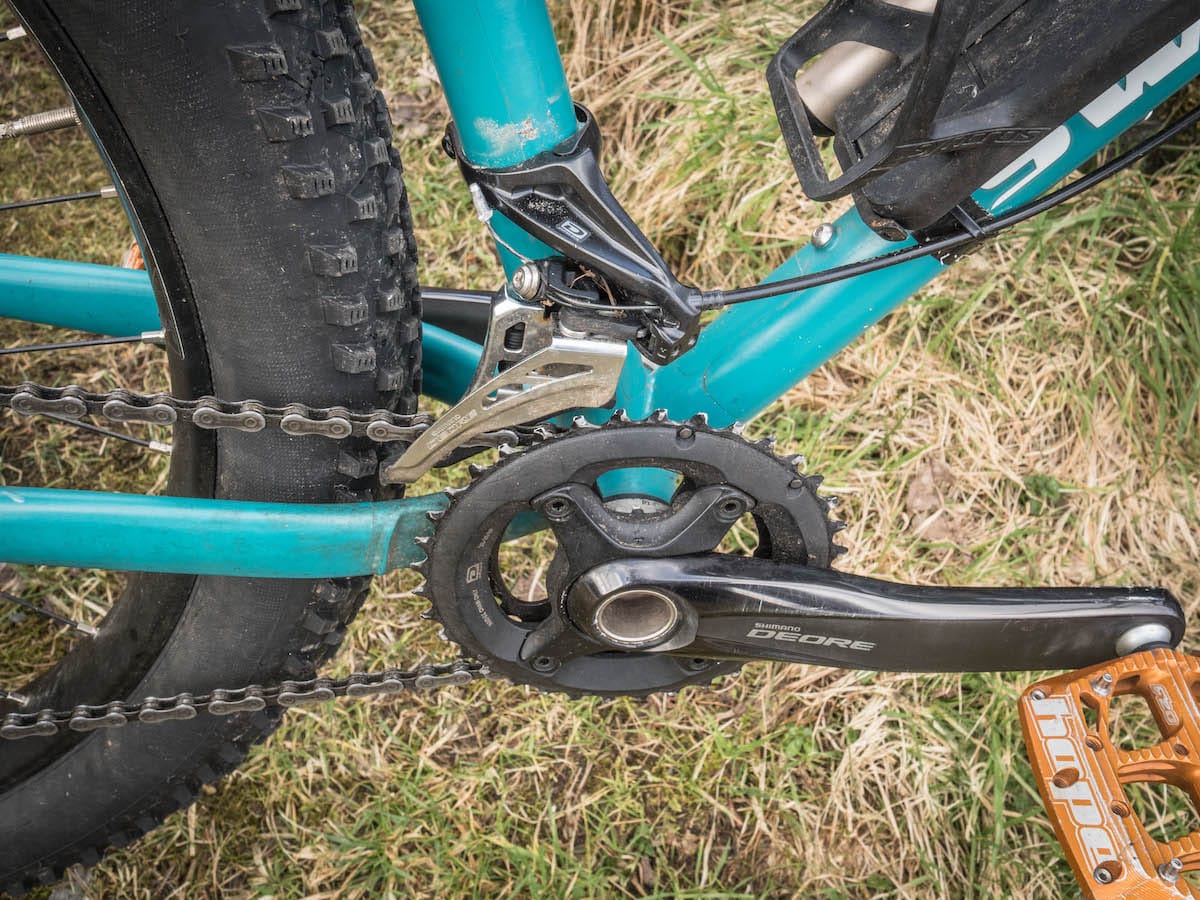
If there’s one thing thing that Shimano is fond of, it’s a front mech. They have been notoriously reluctant to ditch multiple front chainrings, and given that I tend to take a very different view on the necessity of front mechs, I expected this to be my biggest bugbear with the new Deore. That said, the big change here is the move to a Side-Swing mech with its full length outer cable, and so long as your frame isn’t 1x specific, Shimano will provide whatever arcane configuration you require – in this instance a humble band-clamp fitting.
Shimano Deore M6000 Cassette & Chain – £64.99 & £19.99
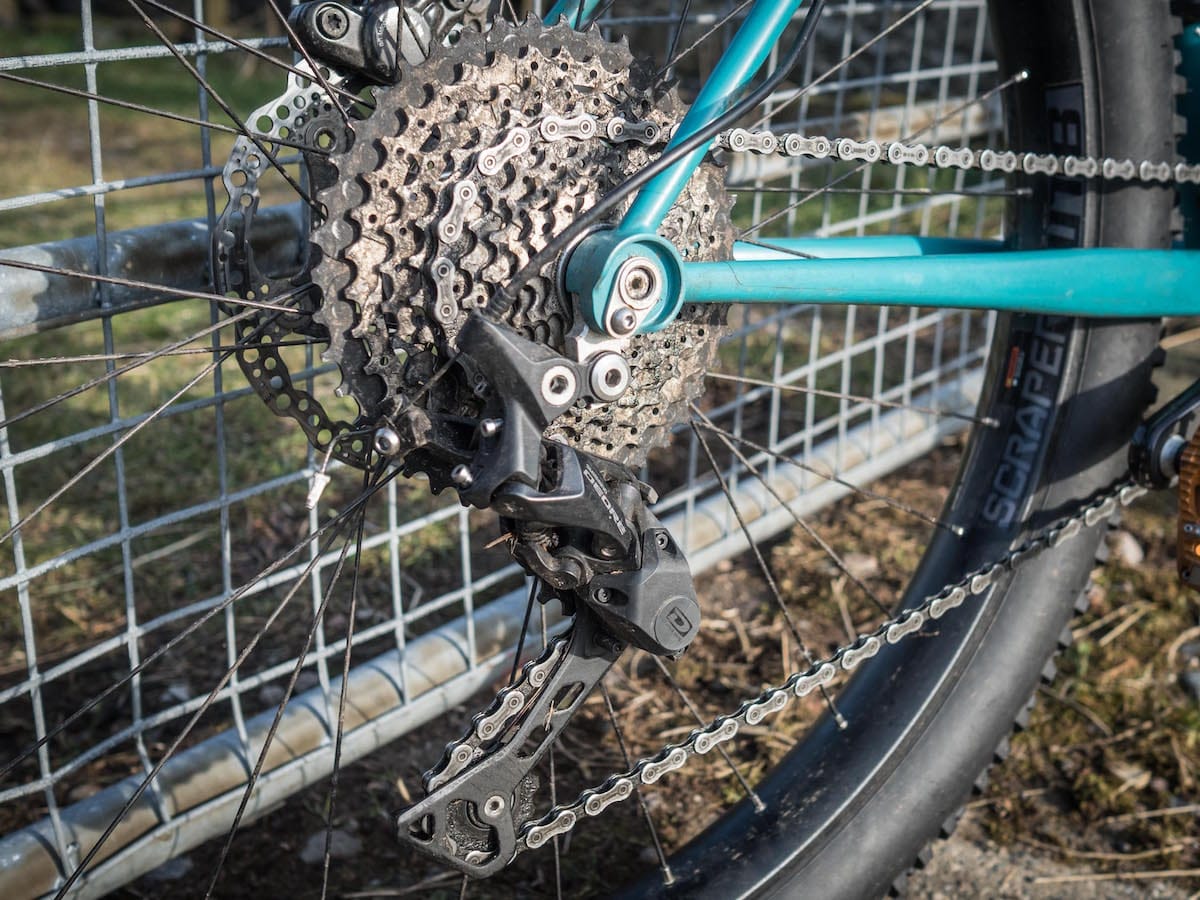
Would you like to supersize that? It’s all about teeth count nowadays, and the M6000 cassette tested here has gone up to 42 teeth (making it ripe for a budget, 10-speed single-ring conversion, some might say). In an attempt to differentiate it from the other groupsets, Shimano has stuck with 10-speed, so apologies if you thought you were looking at a cheap replacement for your SLX or XT 11-speed cassette. Similar to 11-speed Shimano cassettes, construction is steel except for the largest alloy sprocket. The largest eight sprockets are pinned together, leaving the smallest sprockets on their own.
Shimano Deore M6000 Rear Mech – £64.99
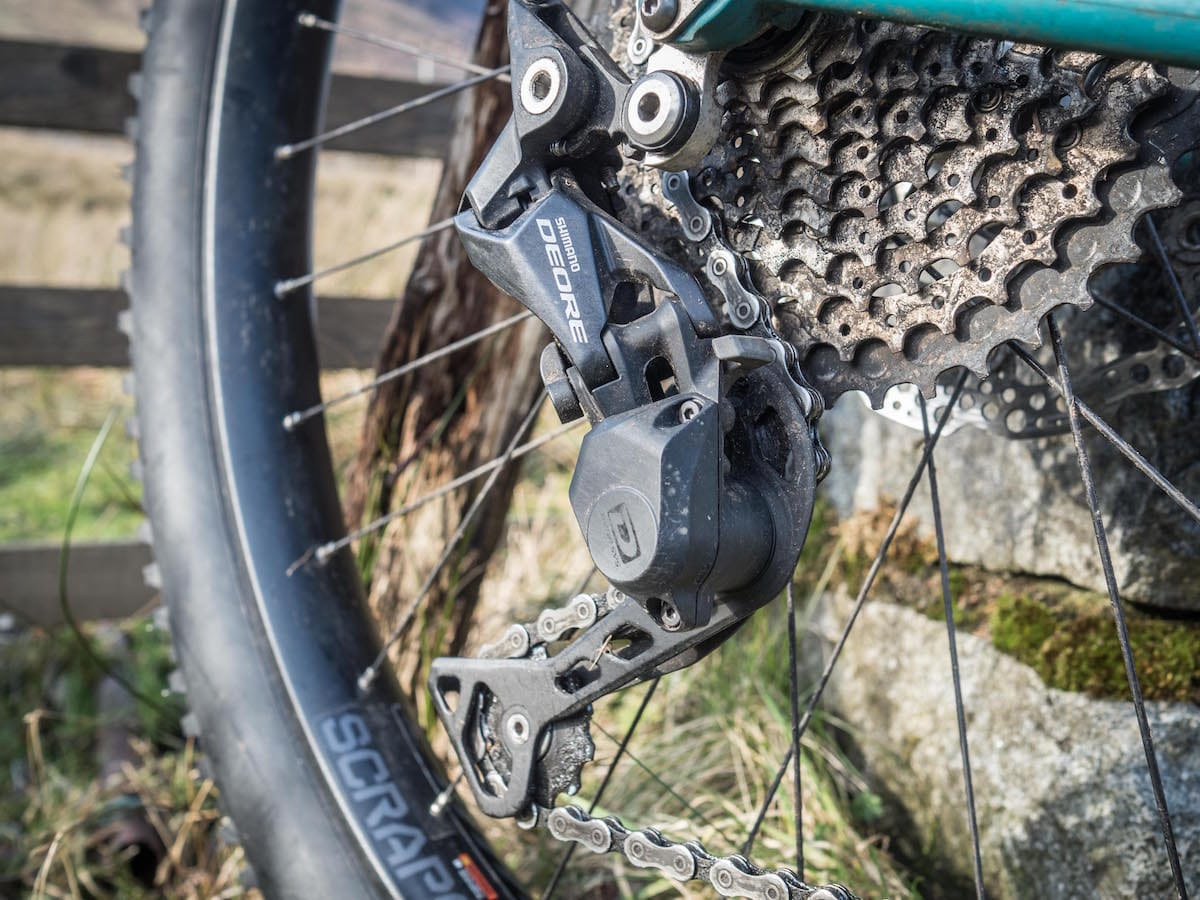
The rear mech goes Shadow+, gaining a lower profile and efficient clutch, which effectively makes it a 10-speed version of the more expensive 11-speed mechs, only one that uses cheaper, heavier materials. This is the medium-cage (GS) version needed to clear the larger cassette.
Shimano Deore M6000 Shifters – £26.99ea
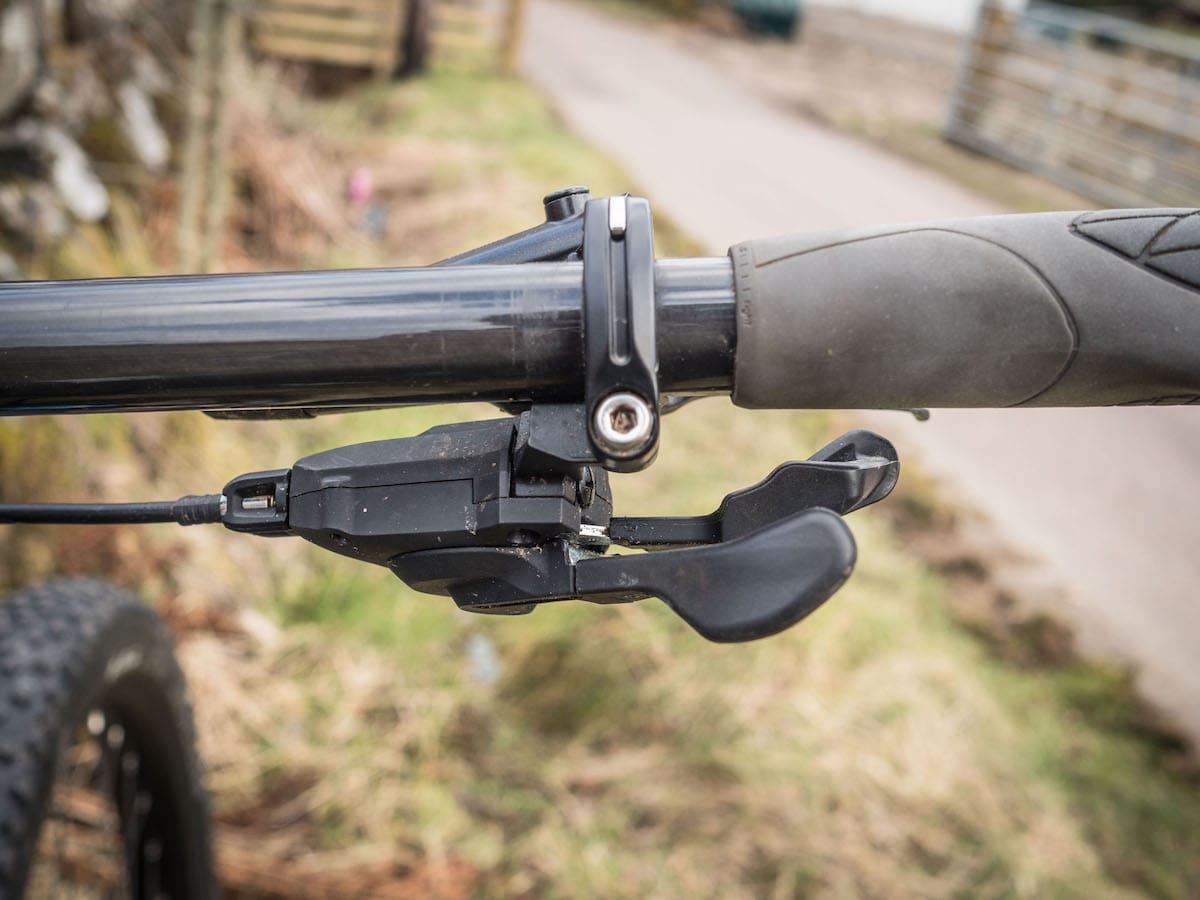
This is probably the point at which Deore’s budget leanings make themselves most apparent, with a noticeably more ‘plasticky’ construction than Deore XT, for example. That said, they are incredibly similar to current SLX (minus 1 shift, of course), and allow multiple down-shifts, and single up-shifts in either direction from the shorter lever. The incorporation of ‘Vivid Index Shifting’ supposedly makes them crisper than previous versions, but I still found them to have a little more lever throw than I like, and they are the only component that feels noticeably different to its XT counterpart during use. The welcome inclusion of I-spec mounts allow for neater handlebars.
Shimano Deore M6000 Brakes – £74.99 Per End + Rotors
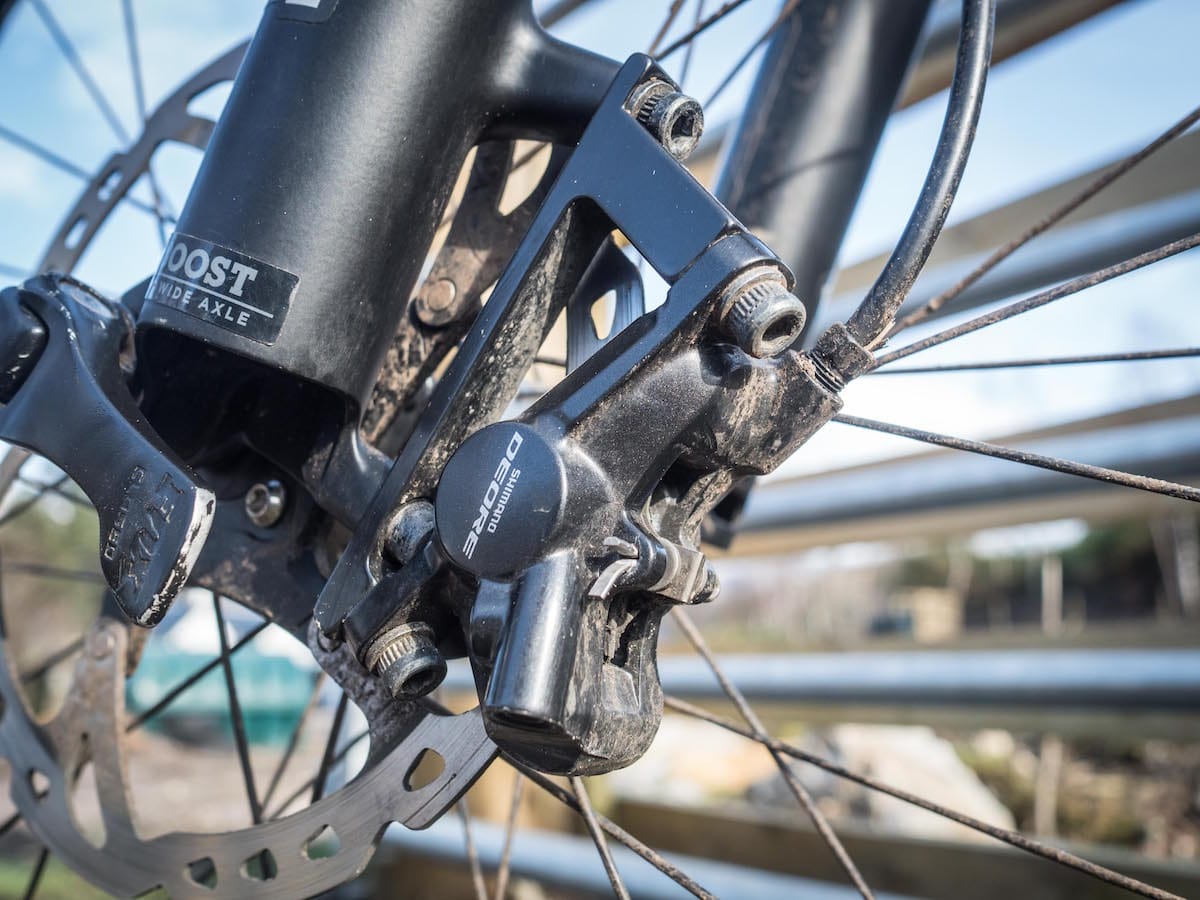
Past versions of Deore brakes have been excellent value stoppers that got the job done in a no frills way, but like the cranks these latest brakes are a big step forward. Gone are the specific pads: the callipers are now compatible with the Ice-Tech pads of posher versions. They also gain phenolic pistons to aid with heat management. The lever is svelte, more refined and becomes compatible with Shimano’s simple bleed funnel system, while also making use of I-Spec compatibility.
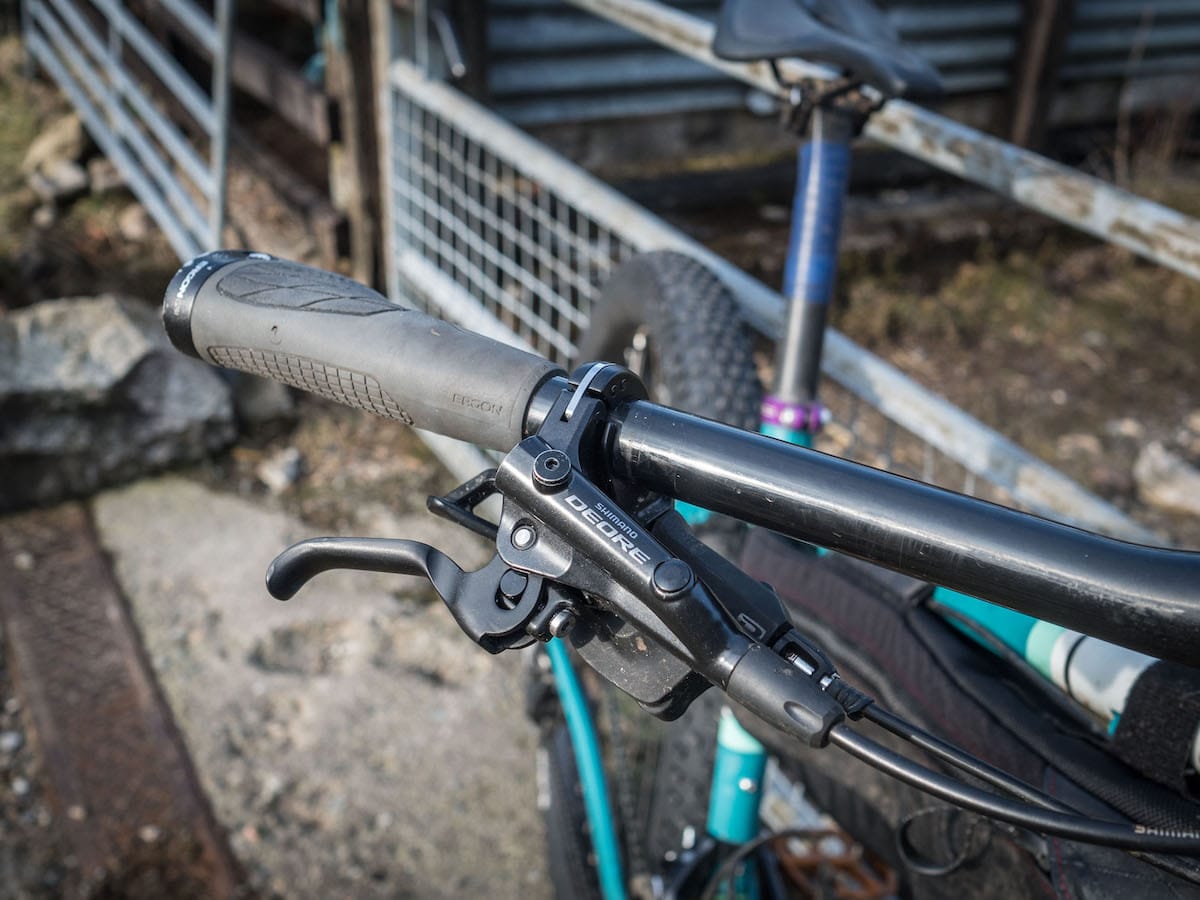
Yeah, great. Is it any good though?
There were never likely to be any surprises here: with no features or designs that haven’t been thoroughly tested elsewhere, I expected nothing less than the usual, clinically precise Shimano shifting from the drivetrain.
Having spent many a mile on 10-speed Dynasys groupsets, everything felt comfortingly familiar, and I honestly didn’t notice the bigger than usual jumps between sprockets on the wide-range cassette – in fact, I felt that the 42 tooth cassette offers better shifting to the largest sprocket than Shimano’s own 11-46t Deore XT cassette that I was using previously. Having wavered to the SRAM side more recently, I can’t say that I’m a fan of the longer lever throw on Shimano’s levers, and when shifting to a harder gear I did miss the ability to jump more than one sprocket at a time. However, that criticism applies to all Shimano & SRAM shifters except the Deore XT and XTR units that offer a double up-shift.
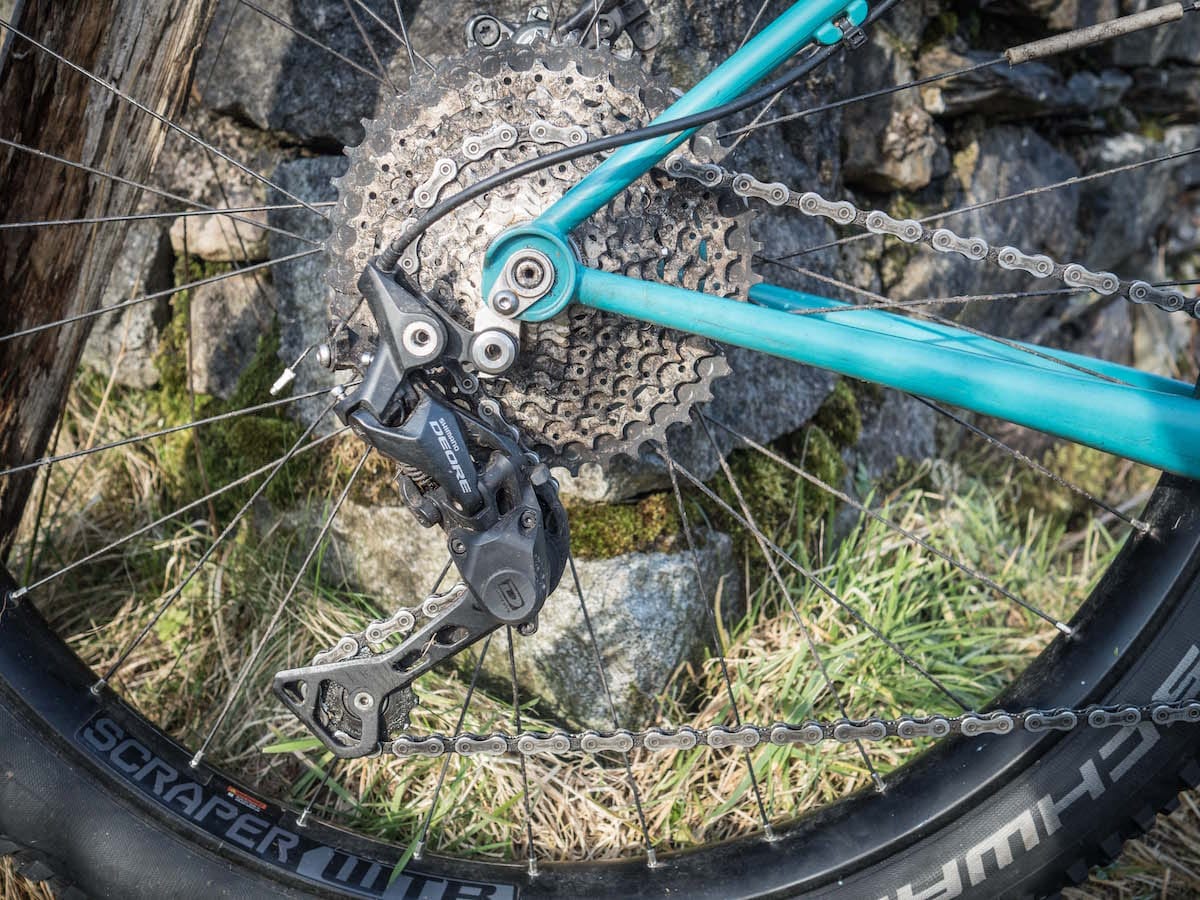
If it was all business at the rear, what about the front? It’s several years since I’ve owned a bike with a front mech, and I didn’t relish the idea of using one here, as I usually find myself wanting to be somewhere between the two and wishing I could just throw the bloody thing in a canal. Personal feuds aside, I cannot fault the side-swing front mech at all. With minimal faff while setting it up, it has performed perfectly, pushing the chain up and down with a crispness that I didn’t know existed on front mechs. 1x may have stolen much of the media thunder the past few years, but in that time Shimano has been quietly perfecting its front shifting to an impressive level.
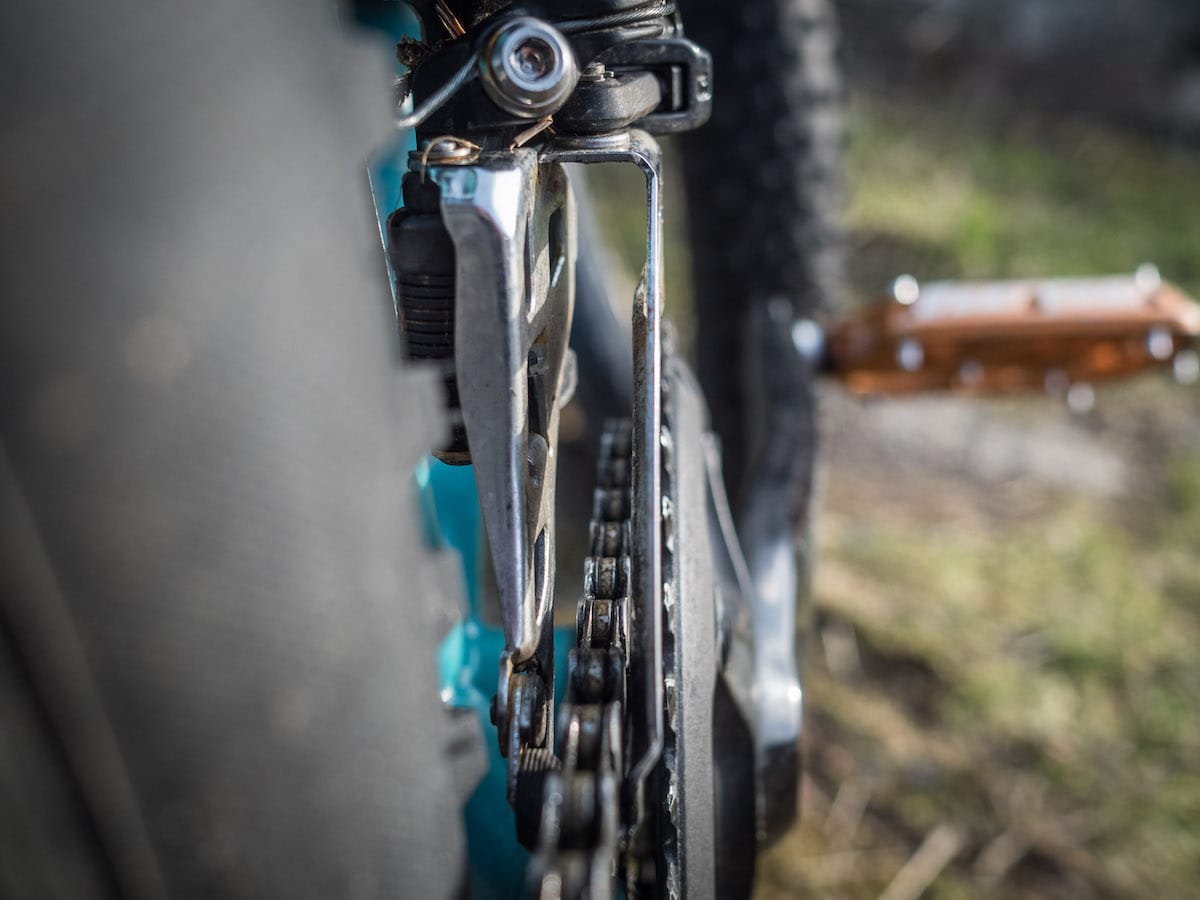
And if multiple chainrings are your bag, then side-swing is your new best friend. I did lose the chain a few times during the test period though, either on rough descents or when simultaneously shifting front and rear mechs at once. Pilot error, perhaps, but a little irritating all the same.
The shifting at the front and rear has required little adjustment over the test period, and has stayed consistent throughout the life of the chain, which is now nicely worn, and the chainrings are only showing minimal wear and tear.
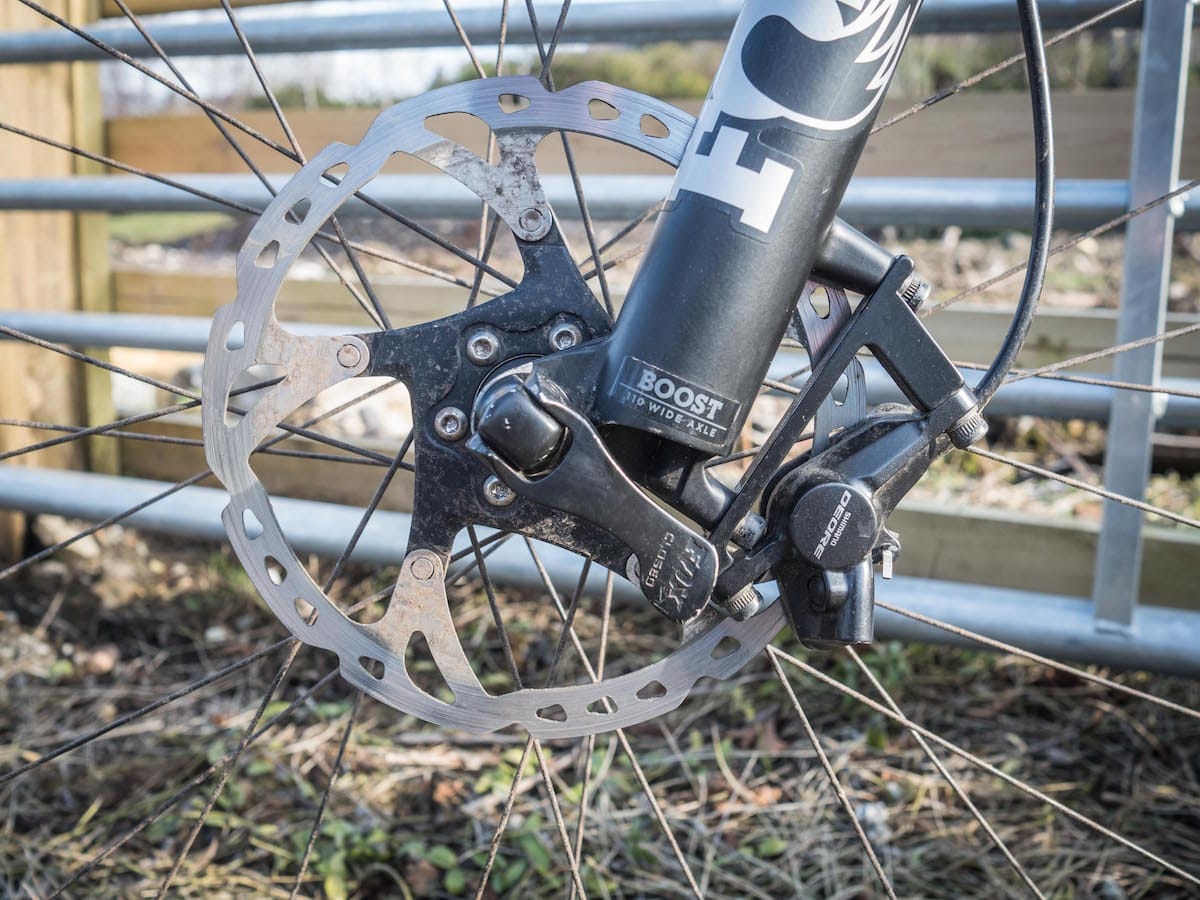
The brakes intrigued me, because I’ve generally never been a fan of Shimano’s ‘digital’ feeling systems, which tend to be either on or off, with little modulation in between. That said, after we spent a little time getting to know each other I was impressed, and apart from the under-performing resin pads I can’t really offer any criticism. They feel and perform like a much more expensive brake with sintered pads fitted, as well as looking pricier into the bargain.
The one thing that I didn’t manage to assess during this review period was their long-term durability. Shimano’s brakes in recent years seem to have a habit of feeling excellent for a few months before quickly deteriorating and becoming increasingly unreliable, spongy and inconsistent. It would be unfair to comment further as these brakes have had no problems during the test period, but it is something that I’ll be keeping a close eye on in the coming months and report back on.
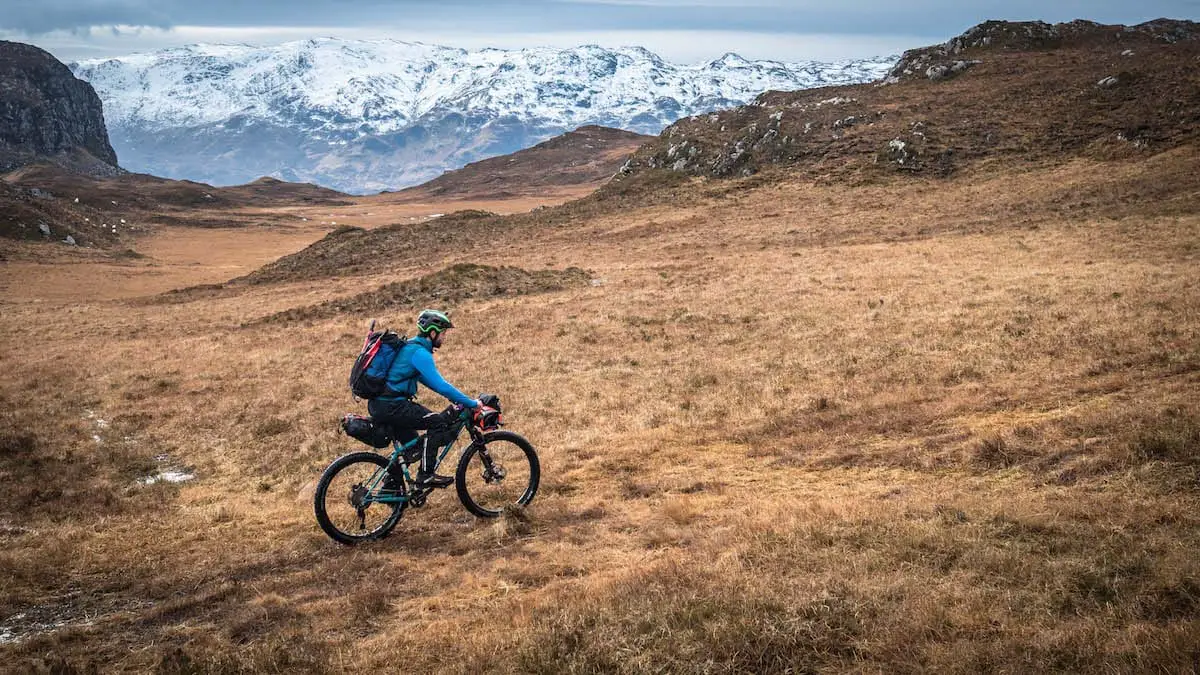
All up, I’ve honestly been blown away by how much technology has trickled down to the M6000 groupset, lifting it way beyond the purely entry-level kit that I was expecting. In a way, this is the payout for those that have played the long game, steadfastly shunning the temptations of gold cassettes and ever-increasing prices for the cheap, simple durability of Deore. It might be short a couple of gears over the latest developments, but as someone that uses a 1×12 system on another bike, I can’t honestly say that I noticed or cared about the lack of sprockets. I feel that it might be particularly good as a cheap, durable, wide-range drivetrain for bikes of an adventuring persuasion.
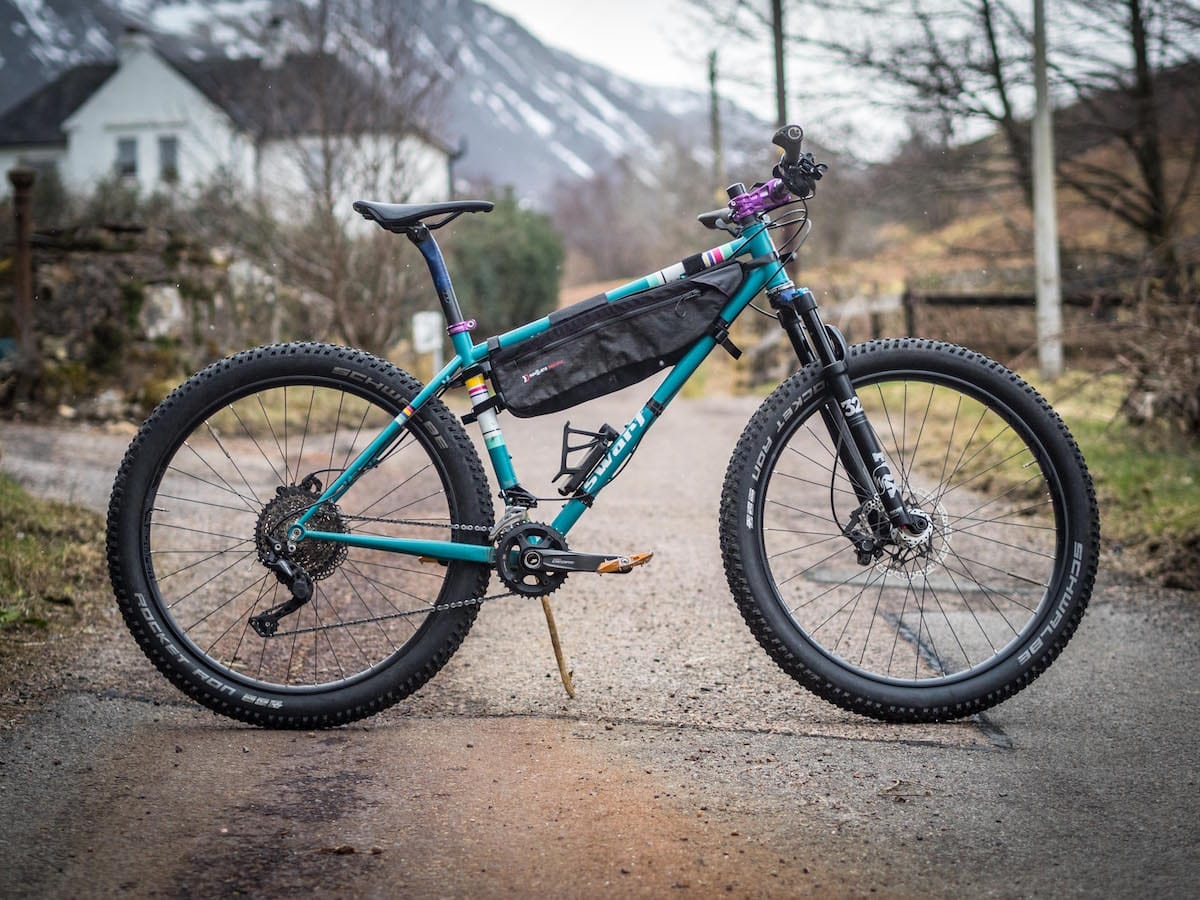
Overall
Ultimately, we’re at a point where drivetrain technology seems to be peaking, and the lower tiers are catching up with the top. If you can get past the mostly functional looks and lack of a dedicated 1x option, the M6000 groupset delivers premium features, superb durability and a wide range of gearing at a price that makes a lot more sense than some of the competition, including its own siblings.






“finally, Deore level crank arms receive Hollowtech technology”
Which they had in 2000, in the bang-for-bucktastic M510 groupset 🙂
There’s no such thing as “cheap on performance”
A good thoughtful review. But it’s not really entry level though. With Altus, Acera, Alivio.
OK it’s as low as you’d expect to see on a ‘proper’ mountain bike, but it sits bang in the middle of the 7 tiers Shimano offer.
I remember being a teenager and a friend pulling up on a bike covered in deore stff in 2000/2001 ish. Man it looked the shiz. I couldn’t imagine how bikes or shimano could every improve!